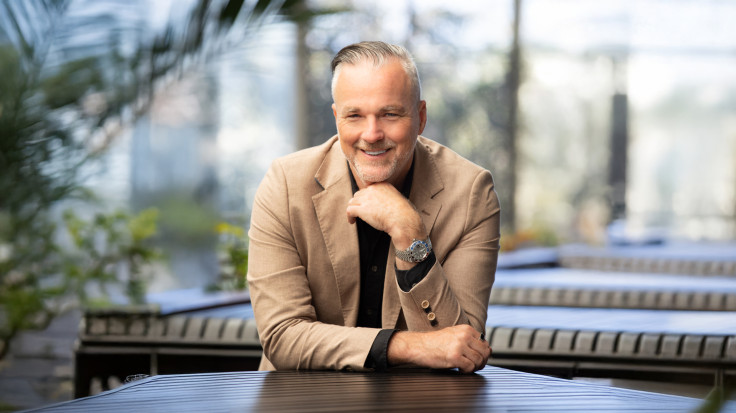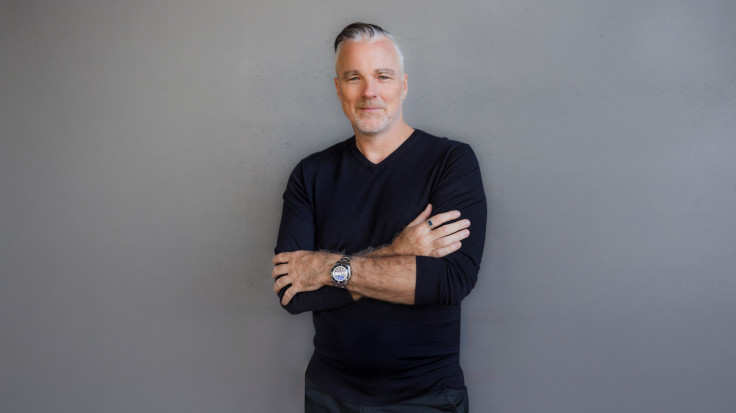As Australia’s wellness market grows, the International Institute for Complementary Therapists is bringing structure and credibility to an industry traditionally overlooked by regulators and insurers.

The wellness economy in Australia is experiencing a profound transformation. Driven by increasing consumer interest in holistic health and preventive care, the demand for complementary therapies such as naturopathy, energy healing, and herbal medicine is rising. According to the Australian Bureau of Statistics, over 67% of Australians now use some form of complementary medicine. Industry estimates place the value of the sector at over $5 billion annually, much of it spent out-of-pocket.
Yet despite this market growth, many natural therapy practitioners still lack access to structured support, professional accreditation, and tailored insurance. This is where the International Institute for Complementary Therapists (IICT), founded in 2002 by Australian entrepreneur Lawrence Ellyard, has found its purpose.
Headquartered in Byron Bay, New South Wales, IICT is providing a national solution to a long-standing problem: professionalising a fragmented sector while giving thousands of wellness practitioners the tools to grow sustainable businesses.
Establishing a Unified Platform for Practitioners
IICT offers professional membership, insurance access, and business resources for more than 11,000+ practitioners, most of whom are based in Australia. It recognises over 1,100 modalities, from kinesiology and aromatherapy to lesser-known practices like Bowen therapy and sound healing.
“We saw a critical need to unify the space,” says Ellyard. “So many talented practitioners were isolated and unsupported. We created a system that offers legitimacy, community, and practical business tools.”
Accreditation through IICT provides legitimacy in a space where many practices remain unregulated. It also gives clients greater confidence, helping practitioners build long-term, referral-based businesses.
Addressing Insurance and Legal Gaps
Australia’s insurance landscape has historically struggled to accommodate holistic therapies. Practitioners often found themselves excluded from traditional business insurance or offered generic policies that failed to reflect their unique services.
To bridge this gap, IICT partnered with local and international underwriters to design policies specifically for complementary therapists. Members can obtain tailored coverage for professional indemnity, public liability, and multi-modality practices—a key consideration for solo operators and mobile businesses.
This service has proven especially relevant in Australia, where sole traders dominate the wellness sector and legal disputes can quickly derail unprotected practices.

Supporting Women-led Wellness Enterprises
One standout feature of IICT’s impact is its support for women entrepreneurs. In Australia, a significant share of wellness practitioners are women running independent or micro-scale businesses. IICT’s business model—affordable, flexible, and digitally accessible—has made it easier for these practitioners to obtain accreditation, insurance, and business guidance without major upfront costs.
As Ellyard notes, “We designed our systems for accessibility. Whether someone’s in Byron Bay, regional Victoria, or suburban Perth, they can join IICT and get the same level of support.”
Building Business Infrastructure and Resources
In addition to insurance and accreditation, IICT provides business resources, including marketing templates, practice management tips, and access to digital training. These tools are helping Australian practitioners shift from part-time passion to full-time profession.
This is especially important in regional areas, where access to professional development can be limited. IICT’s digital-first approach ensures that remote and rural therapists receive the same quality of support as those in metropolitan hubs.
Digital Transformation and Member Scalability
By investing in a fully online platform, IICT has created a scalable membership model that supports Australian practitioners at every stage of their careers. From onboarding and application review to insurance renewal and resource access, all systems are integrated digitally.
This infrastructure enabled IICT to weather the COVID-19 pandemic with minimal disruption. During a period when in-person consultations were restricted, many practitioners pivoted to online services and sought out IICT for accreditation and client trust.
Membership grew by nearly 20% in 2020 alone, with the majority of new members based in New South Wales, Queensland, and Victoria.
Strengthening Workplace Culture from the Inside Out
Championing Workplace Wellness with WOW Culture, IICT maintains a strong focus on employee well-being through its innovative WOW (Well-being Our Way) culture. Key elements include having flexible working arrangements, comprehensive well-being programs, professional development opportunities, and regular team-building activities.
IICT’s dedication to workplace excellence has led to its recognition as a finalist in the Great Places to Work awards for both 2025 and 2026. Worth mentioning, IICT is also a finalist in Great Places to Work for this year and 2026 (see: https://www.myiict.com/careers/).
As Ellyard explains, “We can’t serve the wellness industry if we’re not living those values ourselves.”

Anchoring Australia in the Global Wellness Economy
Although IICT now operates in 39 countries, its base and strongest performance remain in Australia. This local focus has allowed it to develop a deep understanding of regional challenges, from licensing inconsistencies to state-specific insurance requirements.
Its global expansion has been strategic, targeting markets with similar regulatory gaps. However, Ellyard emphasises that “Australia is our foundation, our testing ground, and our proof of concept.”
The organisation’s success is also helping to elevate Australia’s status in the global wellness economy, positioning it as a leader in scalable, practitioner-first health innovation.
Policy Influence and Industry Positioning
As discussions about regulating complementary therapies continue across Australia, IICT is emerging as a key voice in shaping the future. It has engaged in advisory roles and provided expert commentary on ethical standards, risk mitigation, and consumer safety.
Through its code of conduct and member compliance systems, IICT is helping build a self-regulating framework that could guide future policy development. This positions the organisation not just as a service provider, but as a strategic stakeholder in national health discourse.
Entrepreneurial Roots and Leadership Style
Lawrence Ellyard’s background is steeped in both therapeutic practice and business development. Before founding IICT, he worked as a transpersonal therapist and educator, gaining first-hand insight into the challenges holistic professionals face.
His leadership style blends vision with execution, and values with pragmatism. He’s authored several books, received endorsements from global figures in wellness and personal development, and continues to advocate for ethical, scalable business models within the sector.
A National Solution with Global Reach
IICT’s evolution from a niche accreditation body to a sector-defining institution illustrates the growing maturity of Australia’s wellness economy. With its roots firmly planted in Australian soil, the organisation has built systems, services, and communities that support practitioners nationwide, while positioning Australia as a global thought leader in complementary health.
As demand for natural therapies continues to grow, so too will the need for infrastructure that protects, empowers, and elevates those delivering care. In that future, IICT and Lawrence Ellyard are well-positioned to lead the way.
www.ibtimes.com.au (Article Sourced Website)
#Lawrence #Ellyards #IICT #Professionalising #Australias #Wellness #Sector #Global #Impact
